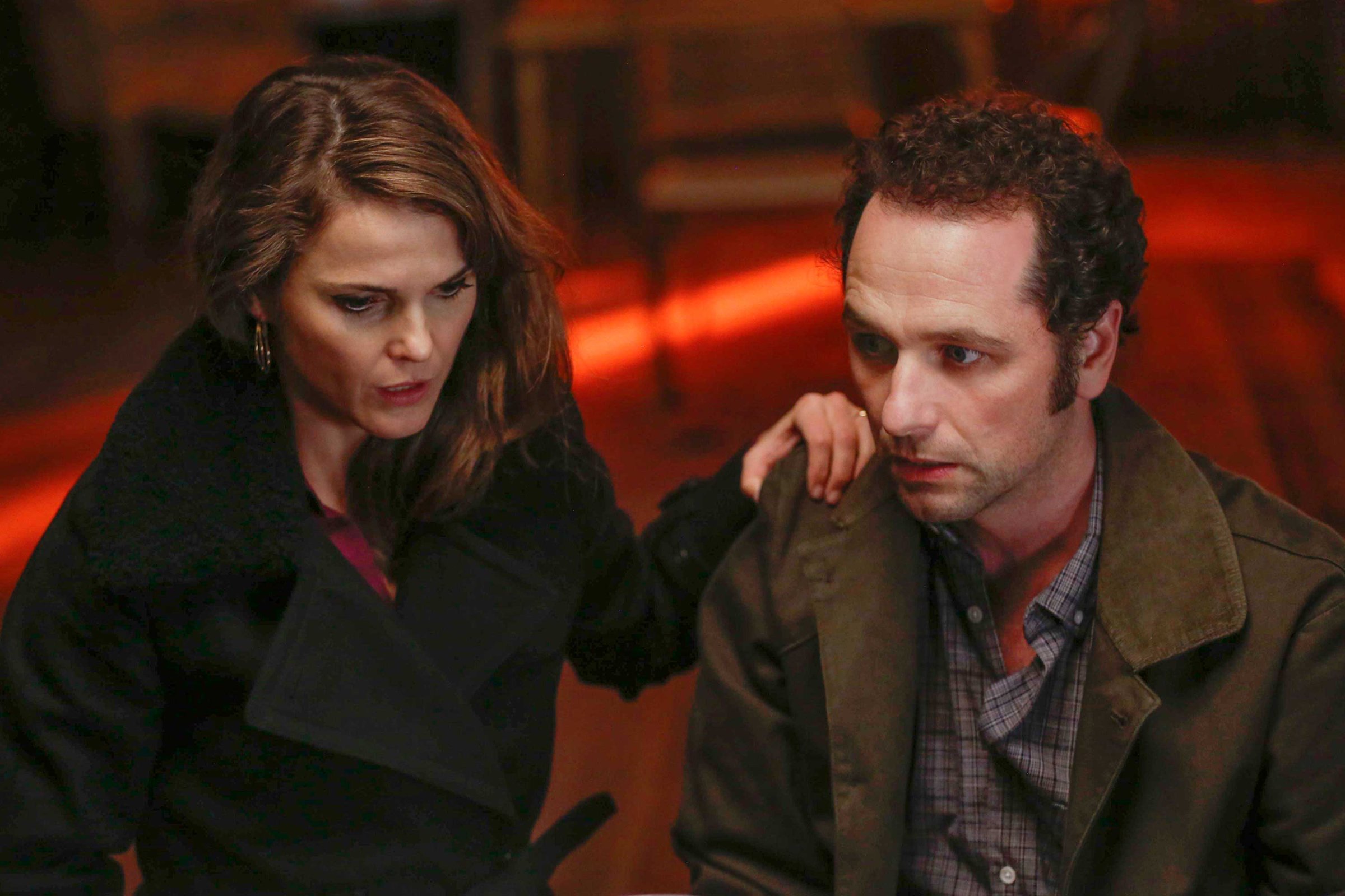
Elizabeth Jennings is forcing her headstrong daughter to spend more time with her pastor. “You can control what you do!” she spits when her daughter tries to get out of it. It seems a conventional punishment from a disciplinarian parent—except that the cause of the tension is how thoroughly the teen reports to her parents on the pastor’s behavior. After all, the reverend knows that Elizabeth and her husband are Soviet spies, and he could upend their lives.
FX’s The Americans is packed with ironies like this one: Elizabeth (Keri Russell), who despises religion, pushes daughter Paige further into the church in order to protect her. In the show’s fourth season, each episode seems to bring a new compromise, as the problems that Elizabeth and her husband Philip (Matthew Rhys) had tried to avoid come to a head. Philip, growing distant, seeks redemption through new-age beliefs; Elizabeth just gets angry.
But neither faith nor ferocious scrambling can save them from the inevitable. We know their mission will fail. It’s 1983, and the Cold War is in its last stage. The family’s attempts to get ahead of history’s crushing weight aren’t applicable just to spies; global events can force hardship on anyone.
The Americans has, this season, built on its past by turning mercenary: one character, a vexed triple agent who had dreamed of unlikely rescue, was sentenced to death and, moments later, received it. The punishment was breathtaking, not least because it so conclusively ended a slow-moving plotline.
It’s easy for a fan of this show to get carried away in describing that twist, or the fate of poor Martha, a former FBI underling who’s been banished to the USSR after having fallen in love with one of Philip’s aliases. Because the show’s narrative is rooted in many seasons’ worth of cumulative texture, it’s becoming a walled garden. What casual viewer could find their bearings in this universe?
The Americans is the heir to Mad Men—a drama that uses its period to tell us about today—but without all the Best Drama Emmys. (Indeed, it’s somehow never been nominated in that category.) Like its characters, it’s a victim of history, airing at a time when the sheer volume of TV tends to crowd out precisely-made shows. This season’s most successful shows were either limited series—with short runs and huge narrative swings—or Game of Thrones and The Walking Dead, both of which thrive on spectacle.
Although The Americans isn’t spectacle-free (it is, after all, about two masters of disguise seeking to bring down the government), it is more notable as part of an increasingly threatened tier of dramas. Its thrills arise from our relationships with its characters—relationships that require real investment. The intimidating weight of all that history could push it to the bottom of the DVR queue, or off an Emmy ballot.
But as Elizabeth says, you can control what you do! This slow-blooming story will be even more compelling on a tight timeline. The first three seasons are available to stream on Amazon before this one ends on June 8. Watch them—it’s a race against the clock that’s worth running.
More Must-Reads from TIME
- Your Vote Is Safe
- The Best Inventions of 2024
- How the Electoral College Actually Works
- Robert Zemeckis Just Wants to Move You
- Column: Fear and Hoping in Ohio
- How to Break 8 Toxic Communication Habits
- Why Vinegar Is So Good for You
- Meet TIME's Newest Class of Next Generation Leaders
Contact us at letters@time.com